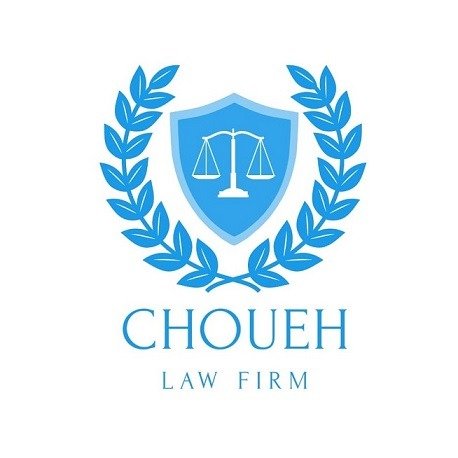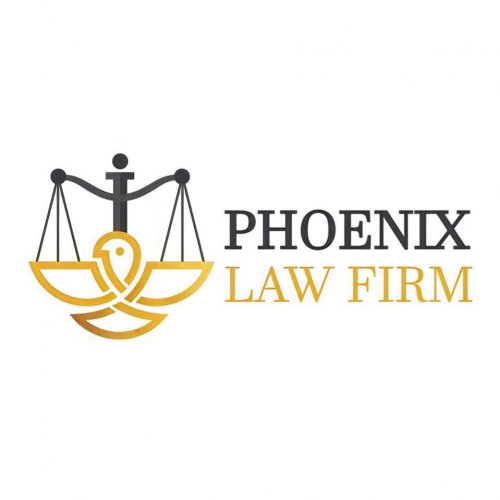Best Acquisition / Leveraged Finance Lawyers in Lebanon
Share your needs with us, get contacted by law firms.
Free. Takes 2 min.
Or refine your search by selecting a city:
List of the best lawyers in Lebanon
About Acquisition / Leveraged Finance Law in Lebanon
Acquisition and leveraged finance law deals with the legal framework surrounding the borrowing of funds to acquire businesses or specific assets, often involving significant amounts of debt. In Lebanon, acquisition finance is frequently used by companies, investors, and financial institutions to facilitate mergers, buyouts, and restructuring deals. Leveraged finance typically involves utilizing a combination of equity and debt, where the assets of the acquired business are sometimes used as collateral. Lebanese laws integrate a mix of civil law principles and banking regulations, alongside certain banking secrecy and financial market controls, making the landscape both unique and complex.
Why You May Need a Lawyer
Pursuing acquisition or leveraged finance in Lebanon can be legally complex and financially significant. Some common situations in which a legal expert is essential include:
- Conducting due diligence before acquiring a business or asset
- Negotiating and drafting acquisition or loan agreements
- Structuring transactions in a way that optimizes tax and regulatory considerations
- Complying with all anti-money laundering and banking regulations
- Ensuring proper security and collateral arrangements, including if assets are located outside Lebanon
- Addressing cross-border or offshore transaction requirements
- Navigating foreign currency controls and Central Bank regulations
- Advising on public offer regulations and approvals for M&A transactions
- Resolving disputes or defaults relating to leveraged finance agreements
Without legal guidance, parties may face unintended financial, regulatory, or operational risks, especially given Lebanon’s evolving financial landscape.
Local Laws Overview
The Lebanese legal system is rooted in civil law traditions, significantly influenced by French law, with specific laws and regulations governing acquisition and leveraged finance:
- Commercial Companies Law: Governs the establishment, management, merger, and acquisition of companies, and sets out requirements for shareholders, directors, and capital.
- Banking Control Commission and Banque du Liban Regulations: Critical rules for financial institutions offering acquisition or leveraged loans, setting capital adequacy, risk management, and reporting obligations.
- Secured Transactions: Laws relating to pledges, mortgages, and guarantees are covered under the Civil Code and special legislation. Typical collateral includes shares, real estate, and movable assets.
- Foreign Exchange Control: With recent financial developments, transfer of funds, foreign currency transactions, and offshore operations are tightly regulated. Some approvals may now be required from the Central Bank.
- Public Offer and M&A Approval: For acquisitions involving public companies or those regulated by the Capital Markets Authority, additional transparency and approval requirements apply.
- Anti-Money Laundering: All parties must comply with strict AML requirements under Law No. 44 of 2015, particularly when funding or receiving sizeable amounts.
Legal procedures and requirements may vary depending on whether the deal is local or cross-border, as well as the parties involved.
Frequently Asked Questions
What is leveraged finance in the context of Lebanese law?
Leveraged finance refers to borrowing funds, usually through loans or the issuance of bonds, to acquire a company or asset, using the asset or company itself as collateral. In Lebanon, such transactions must comply with local banking and commercial laws.
Who can provide acquisition or leveraged loans in Lebanon?
Primarily, licensed Lebanese banks and financial institutions can extend such loans. Foreign banks may participate, subject to Central Bank oversight and regulations concerning foreign entities.
What types of collateral are typically required?
Common types of collateral in Lebanon include mortgages on real estate, pledges over shares, personal guarantees, and security interests in movable property.
How are foreign currency transactions regulated?
Particularly since 2019, the Lebanese Central Bank has imposed stringent controls on foreign currency transfers. Certain transactions now require special approvals, making legal counsel essential.
What are the major regulatory hurdles in acquisition finance in Lebanon?
Key hurdles include obtaining Central Bank approvals, complying with anti-money laundering laws, observing sector-specific restrictions, and navigating the legal process around taking and enforcing security.
Can foreign entities freely acquire Lebanese companies?
Foreigners can acquire Lebanese businesses, but certain industries (such as real estate and media) have restrictions. Approvals or increased scrutiny may apply, depending on the sector and deal size.
What is the role of due diligence in acquisition finance?
Due diligence is vital for uncovering financial, legal, and operational risks. A lawyer will review contracts, compliance status, existing debts, liens, and pending litigation before a deal proceeds.
Is it possible to have cross-border leveraged transactions?
Yes, but these are subject to Lebanese law, international agreements, and may require additional approvals from government bodies such as the Central Bank or the Capital Markets Authority.
What happens if there is a default on a leveraged loan?
In the event of default, creditors can seek to enforce security in accordance with Lebanese law. The process can involve courts and may be time-consuming, so legal guidance is crucial.
Do Lebanese laws address shareholder and creditor rights during acquisitions?
Yes, Lebanese laws and the Commercial Code stipulate procedures to protect both shareholders and creditors, including mandatory notification, buyout rights, and the proper ranking of debt.
Additional Resources
- Banque du Liban (Central Bank of Lebanon): The key regulatory authority for banking and finance, offering guidance on cross-border and domestic transactions.
- Banking Control Commission of Lebanon: Supervises the application of banking laws and monitors credit risk.
- Capital Markets Authority Lebanon: Regulates public company takeovers, securities, and market conduct.
- Lebanese Commercial Registry: Resource for company information, filings, and ownership records.
- Association of Banks in Lebanon: Publishes banking guides and regulatory updates pertinent to acquisition and leveraged finance.
- Lebanese Bar Association: Directory of qualified legal professionals specializing in corporate and finance law.
Next Steps
If you are considering an acquisition or leveraged finance deal in Lebanon, here are suggested steps to follow:
- Identify and list your objectives, whether buying a business, seeking a loan, or investing.
- Gather financial statements, corporate documents, and any existing contracts relevant to your target acquisition.
- Consult a lawyer specializing in acquisition and finance law early in the process to assess initial feasibility, legal risks, and regulatory roadblocks.
- Work hand-in-hand with your legal counsel to conduct due diligence, prepare transactional documents, and apply for necessary government or Central Bank approvals.
- Develop a clear strategy for structuring financing, collateral, and repayment terms.
- If your transaction involves cross-border elements, ensure compliance with both Lebanese and foreign regulations.
- Finally, rely on your legal advisor to monitor the deal through closing, manage document filings, and address post-transaction obligations or disputes.
Engaging the right legal expert early will help ensure your acquisition or financing deal is both compliant and commercially successful.
Lawzana helps you find the best lawyers and law firms in Lebanon through a curated and pre-screened list of qualified legal professionals. Our platform offers rankings and detailed profiles of attorneys and law firms, allowing you to compare based on practice areas, including Acquisition / Leveraged Finance, experience, and client feedback.
Each profile includes a description of the firm's areas of practice, client reviews, team members and partners, year of establishment, spoken languages, office locations, contact information, social media presence, and any published articles or resources. Most firms on our platform speak English and are experienced in both local and international legal matters.
Get a quote from top-rated law firms in Lebanon — quickly, securely, and without unnecessary hassle.
Disclaimer:
The information provided on this page is for general informational purposes only and does not constitute legal advice. While we strive to ensure the accuracy and relevance of the content, legal information may change over time, and interpretations of the law can vary. You should always consult with a qualified legal professional for advice specific to your situation.
We disclaim all liability for actions taken or not taken based on the content of this page. If you believe any information is incorrect or outdated, please contact us, and we will review and update it where appropriate.
Browse acquisition / leveraged finance law firms by city in Lebanon
Refine your search by selecting a city.










